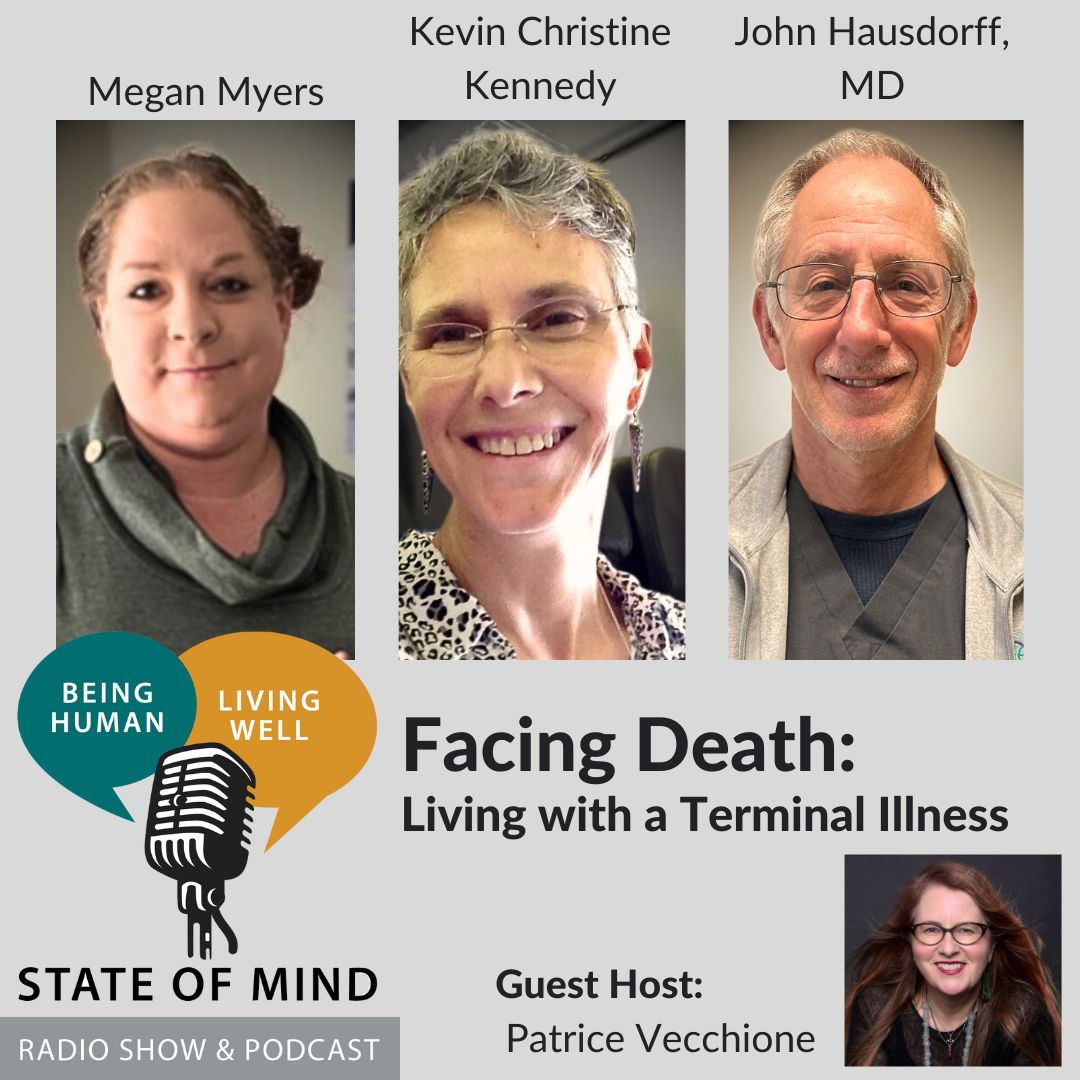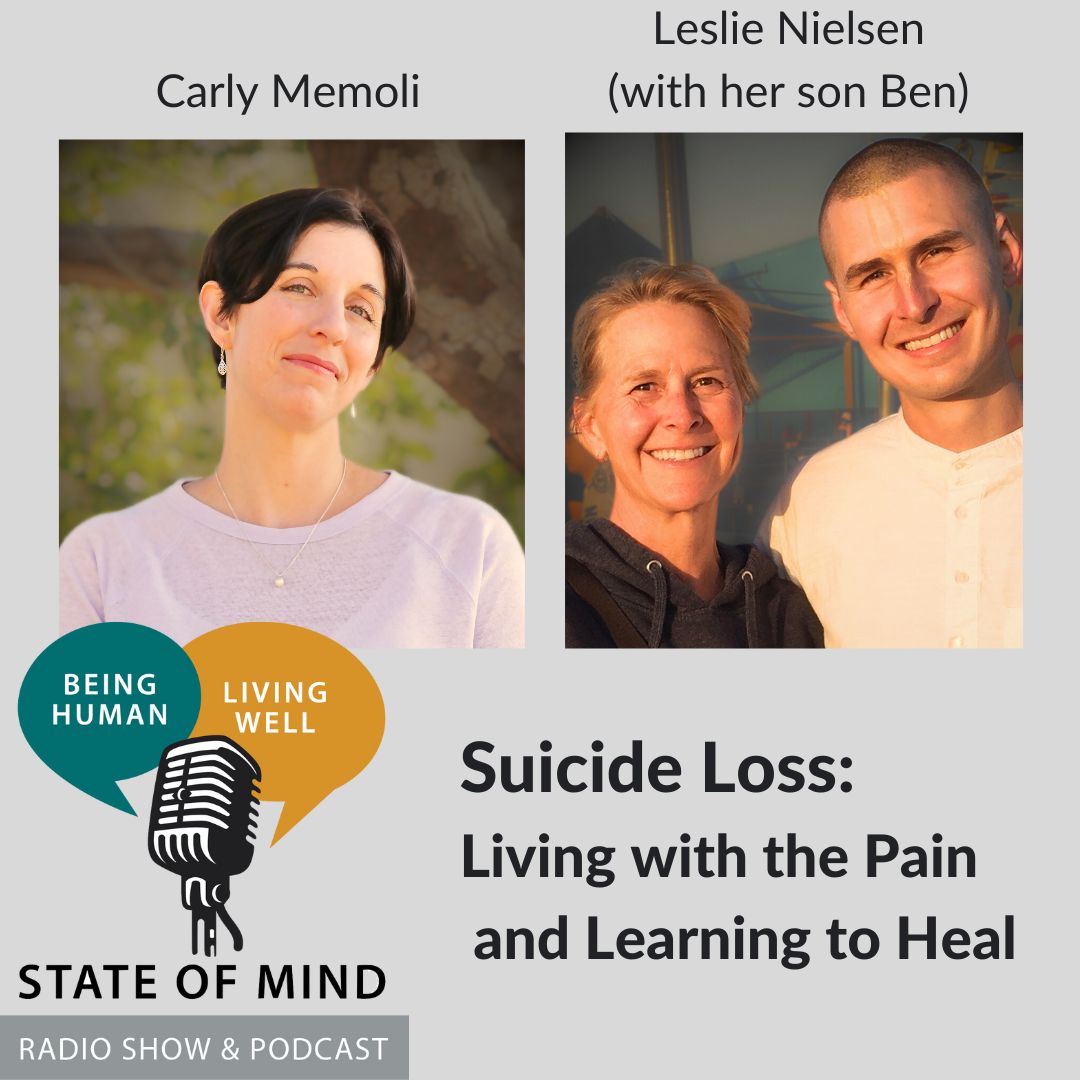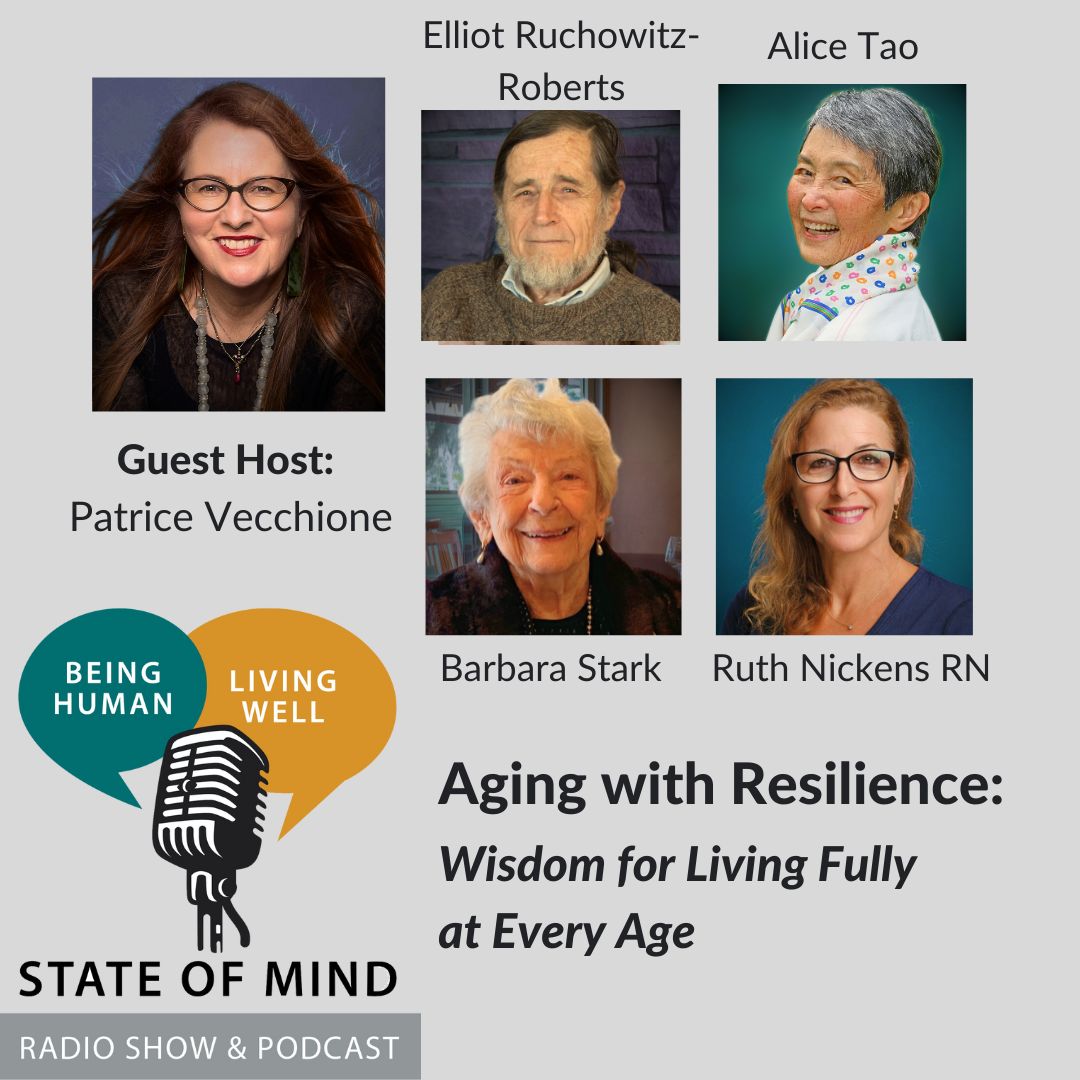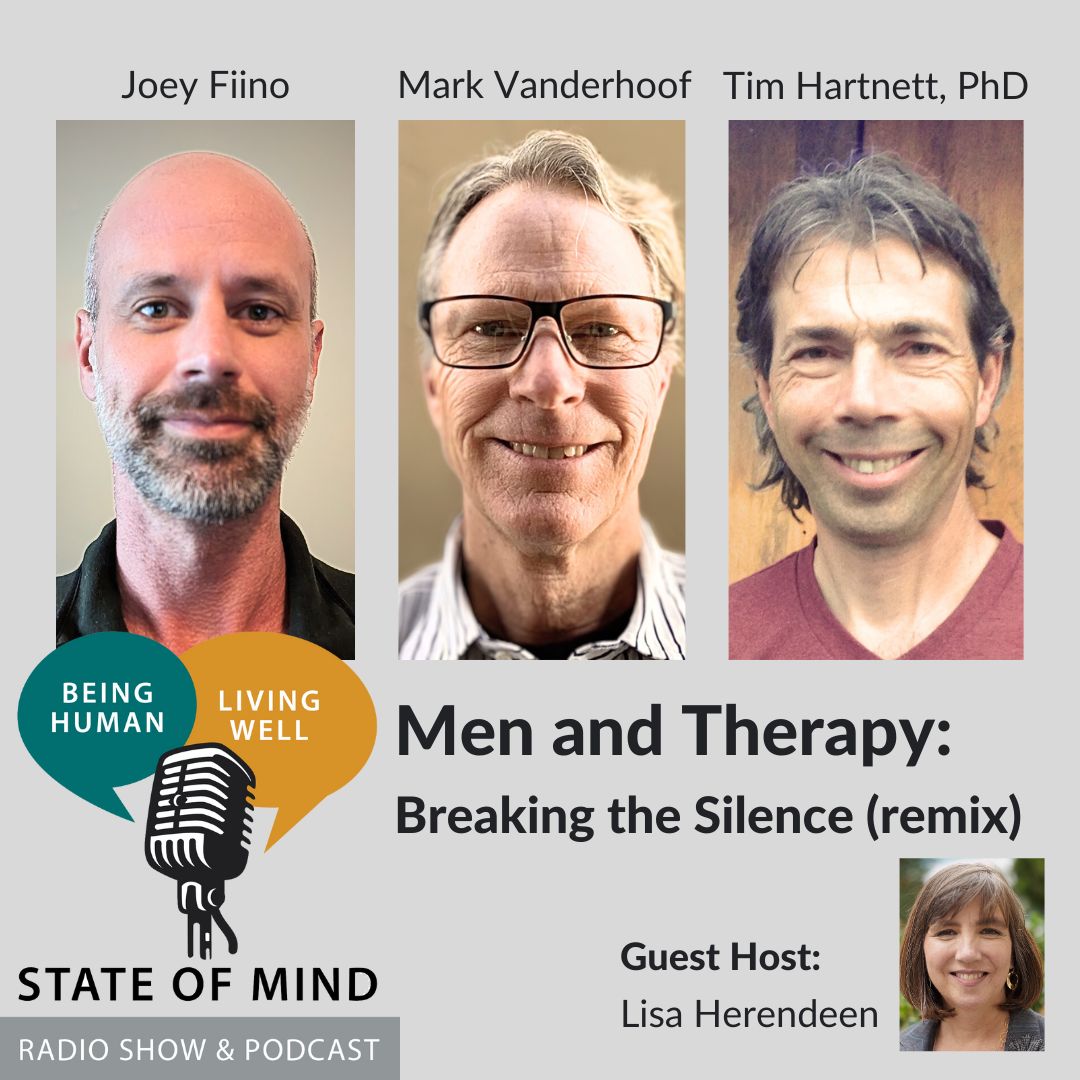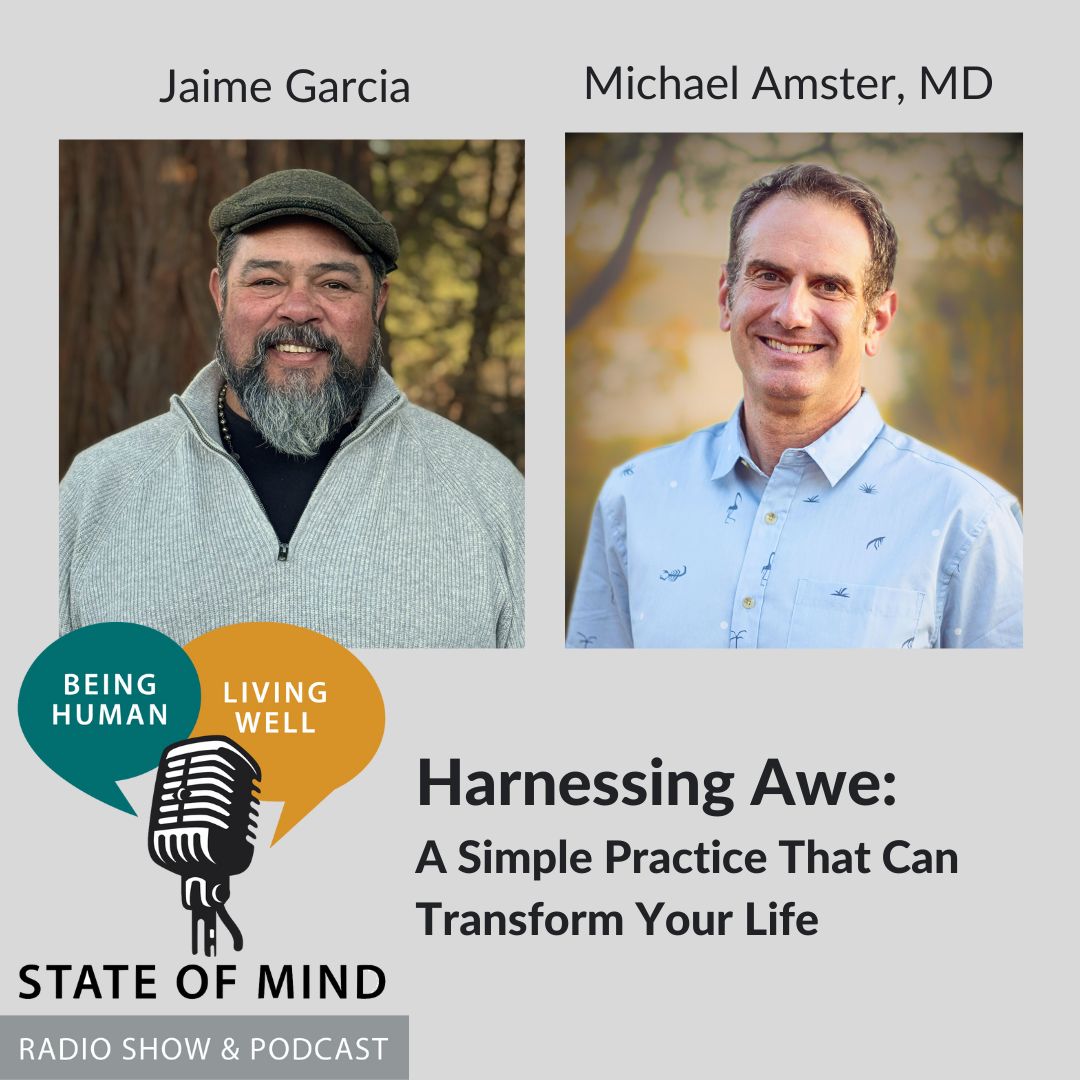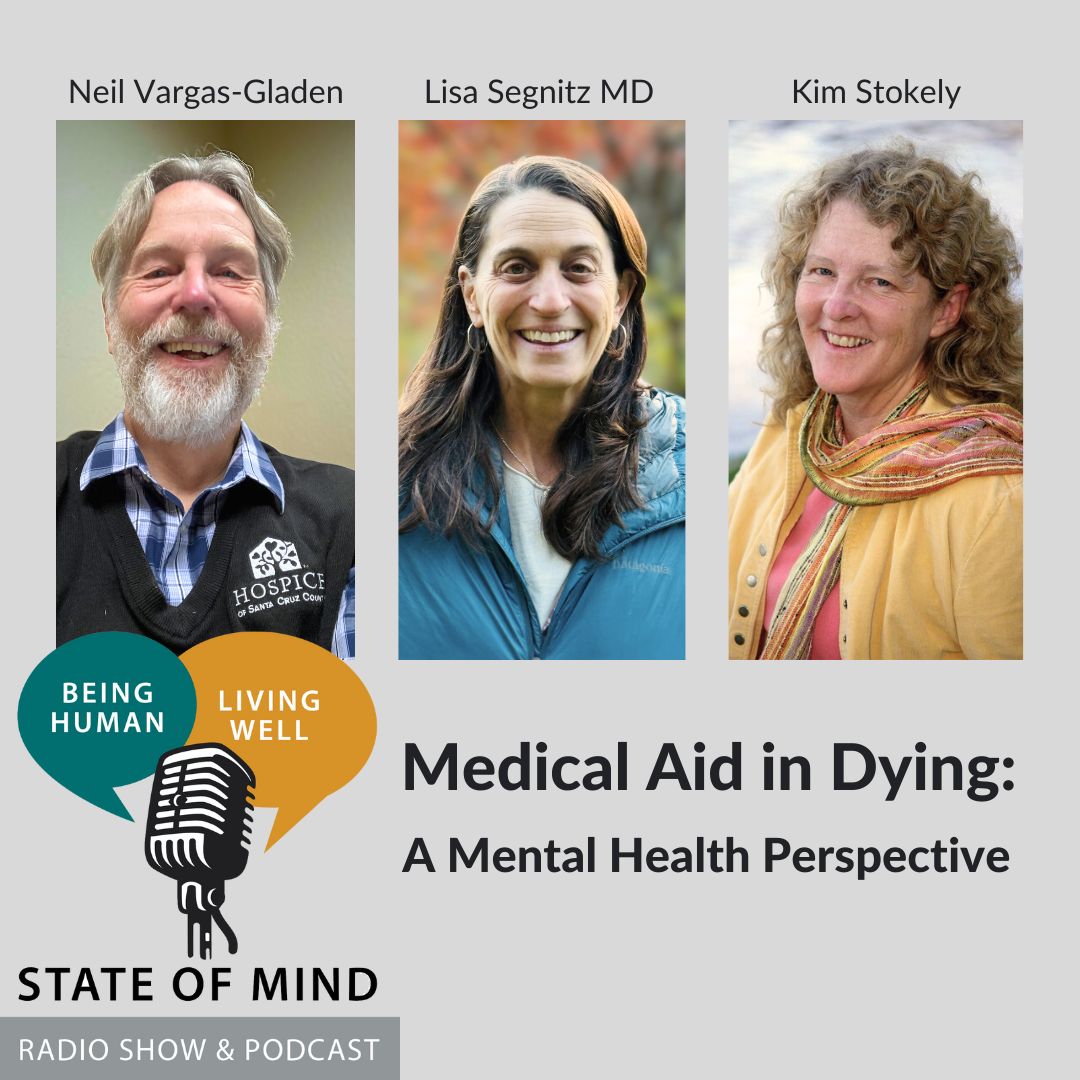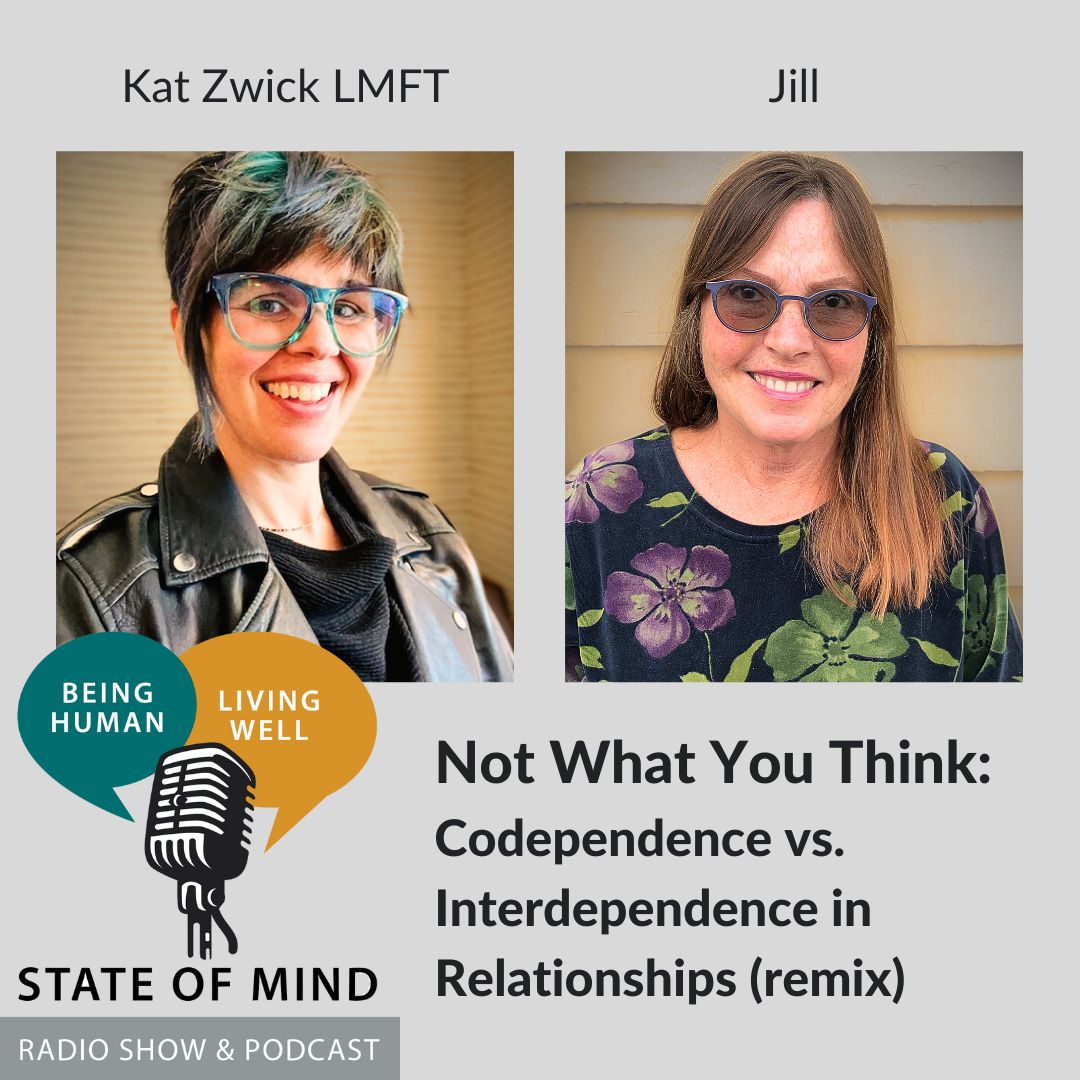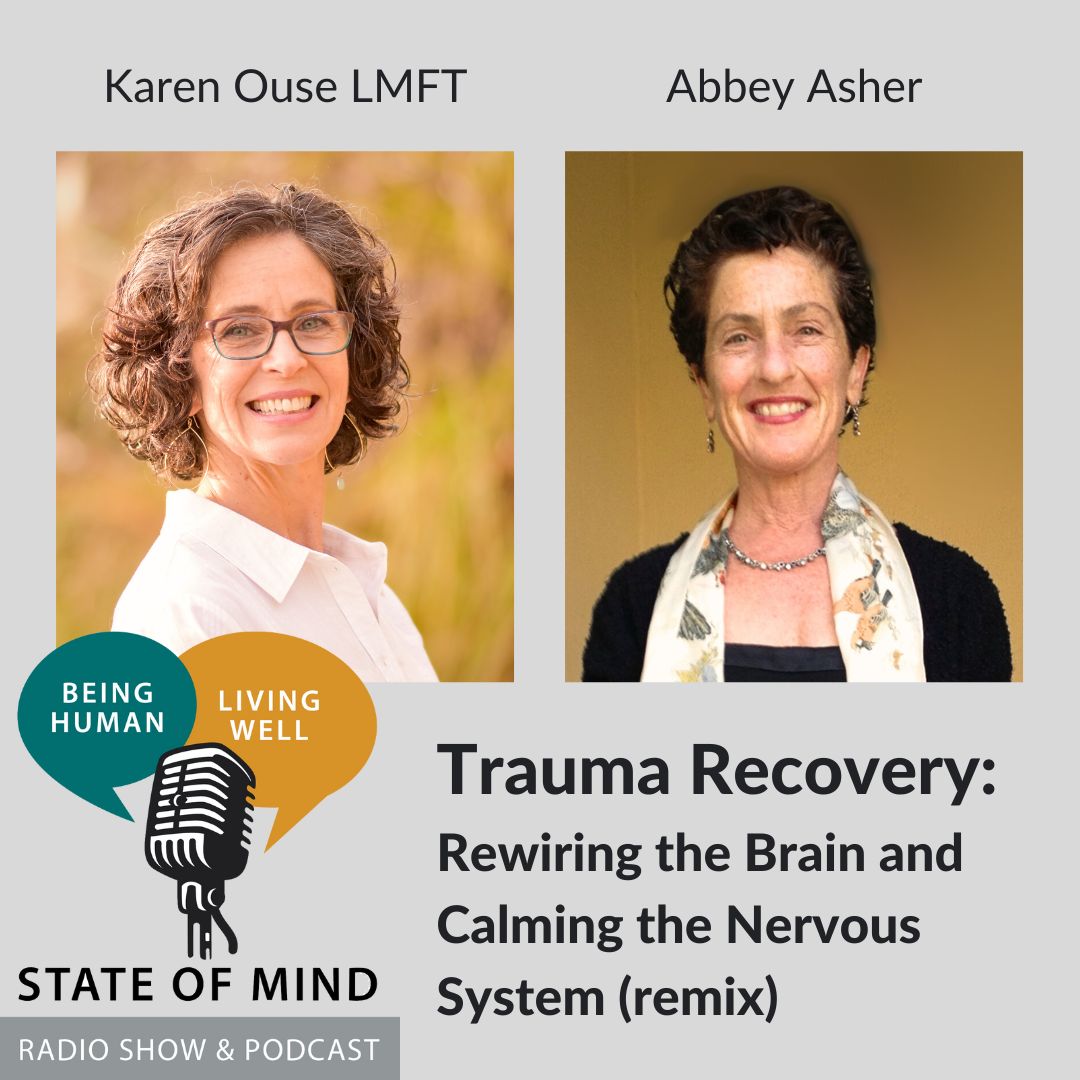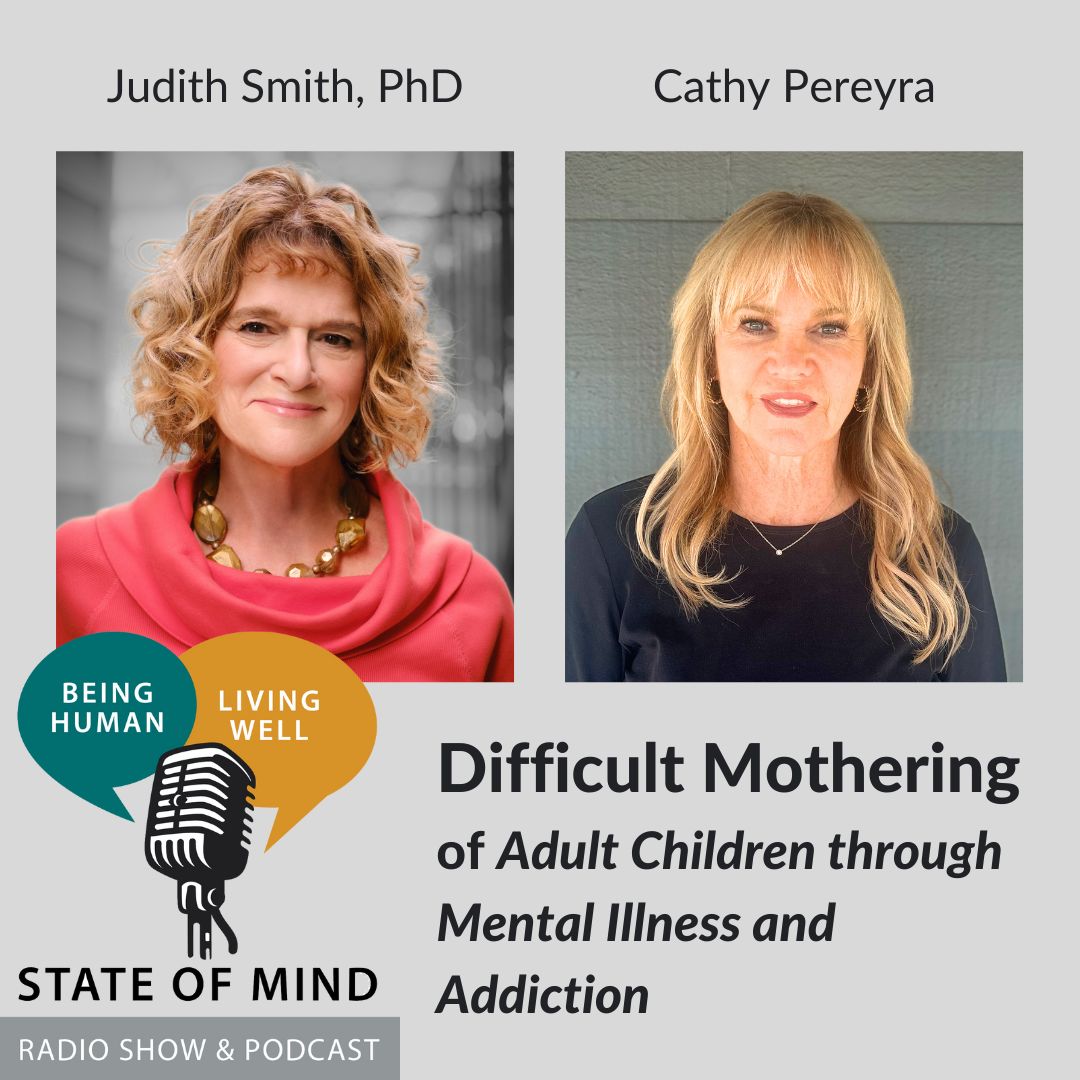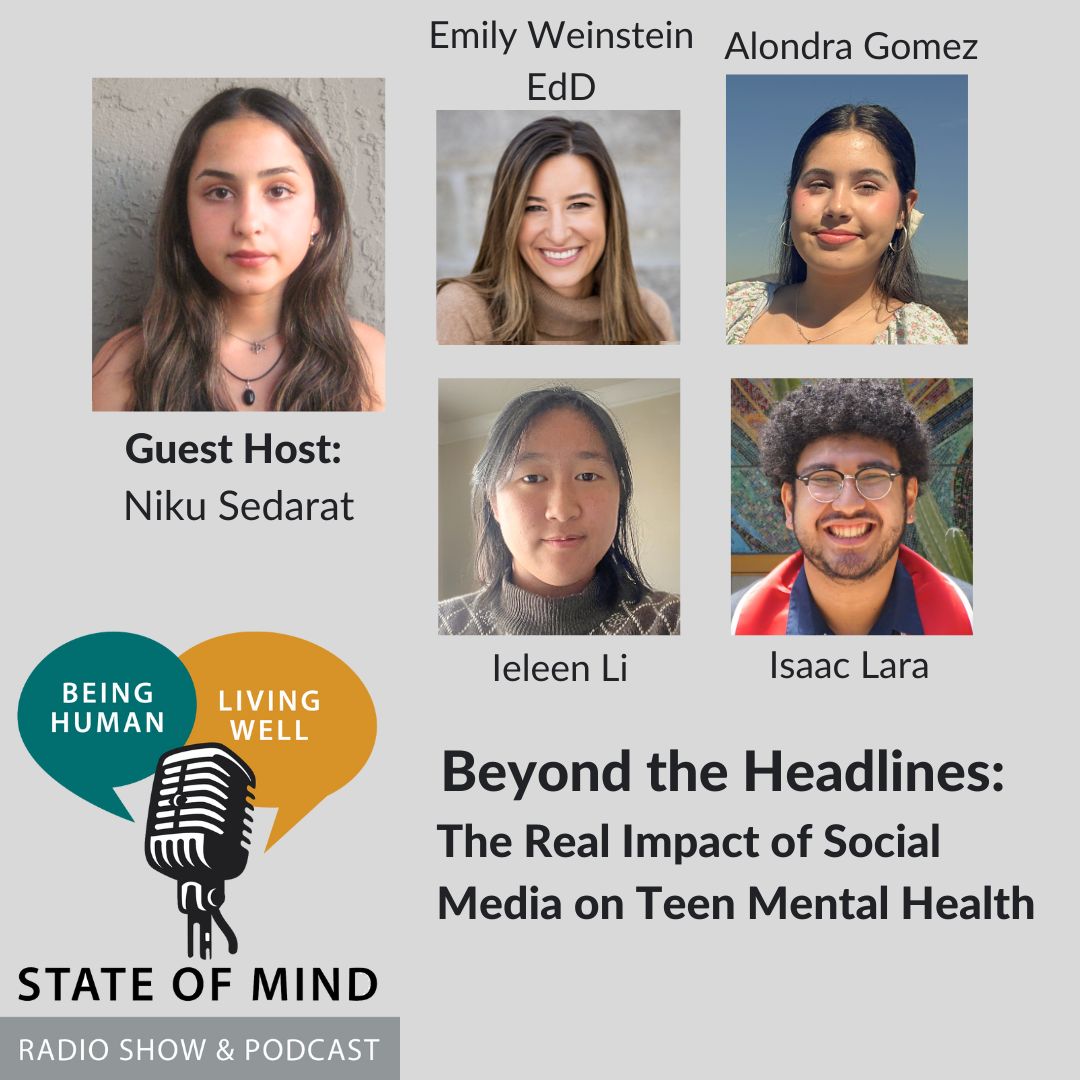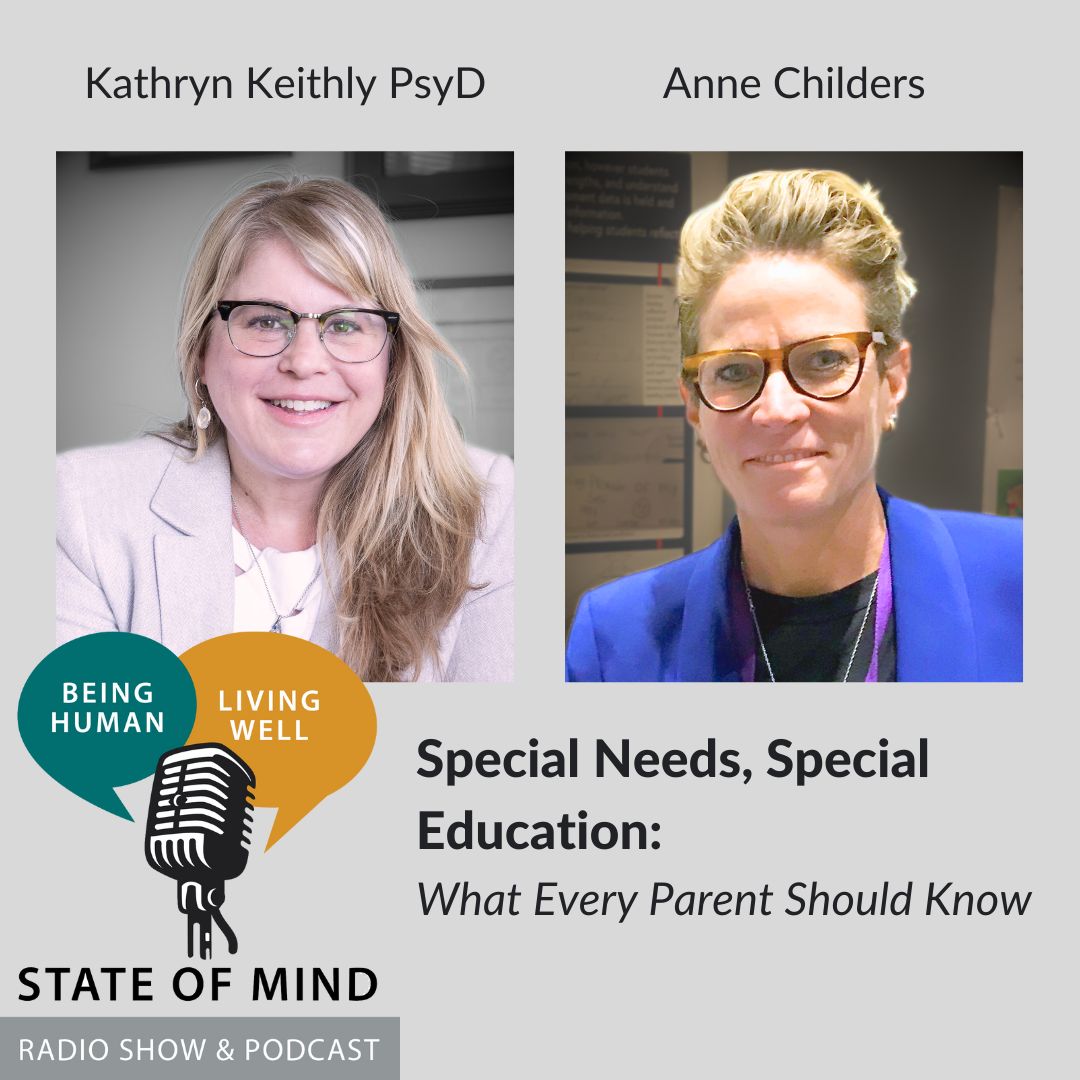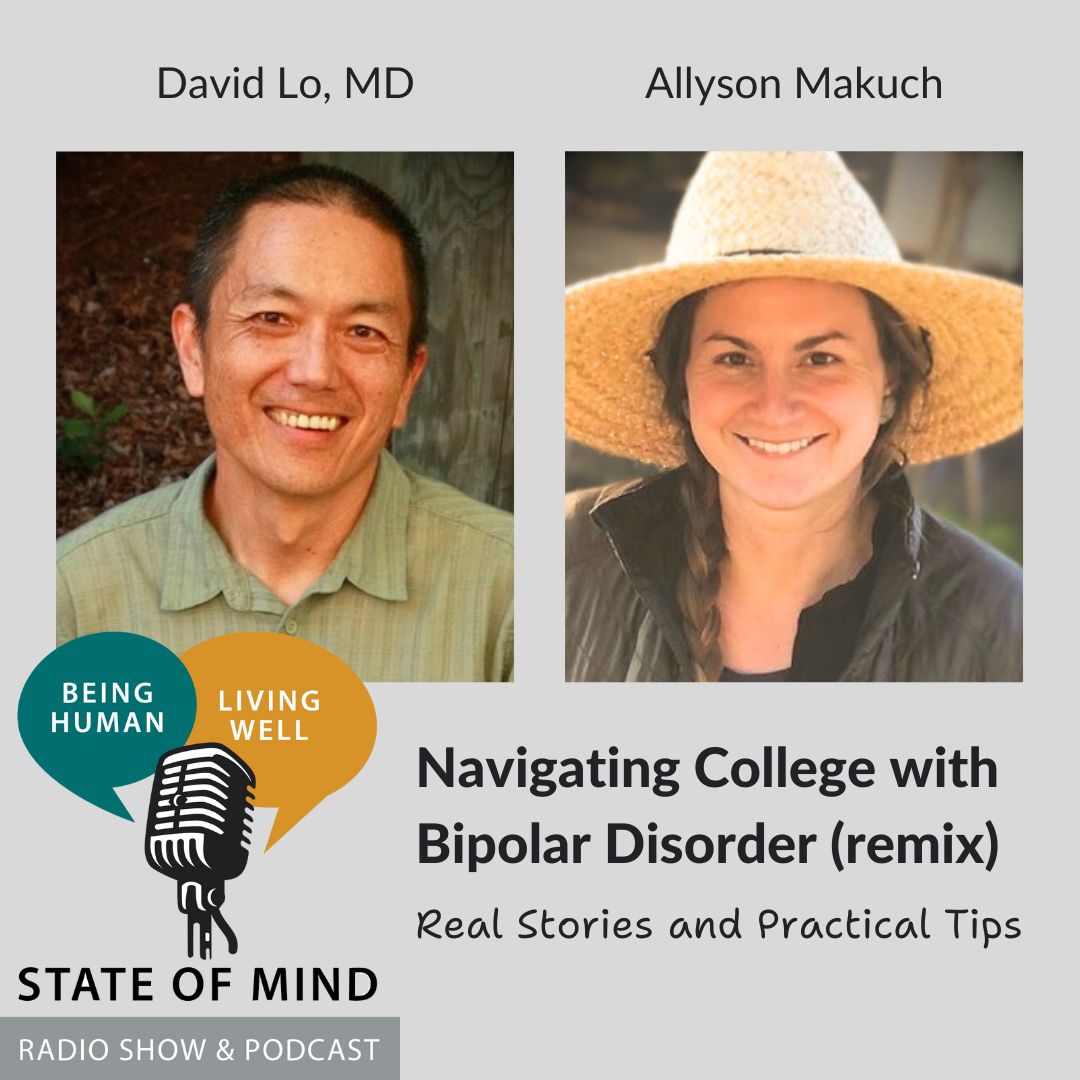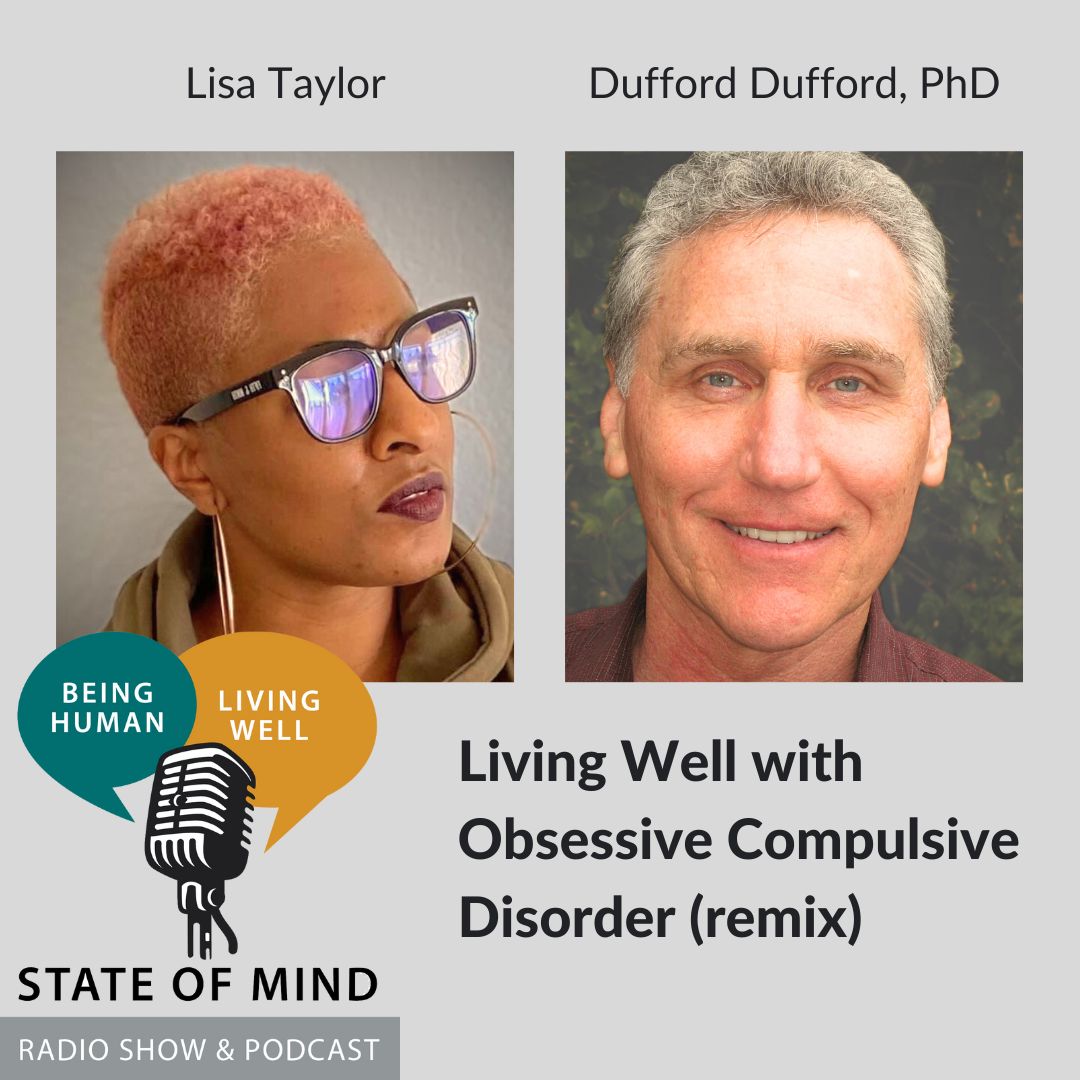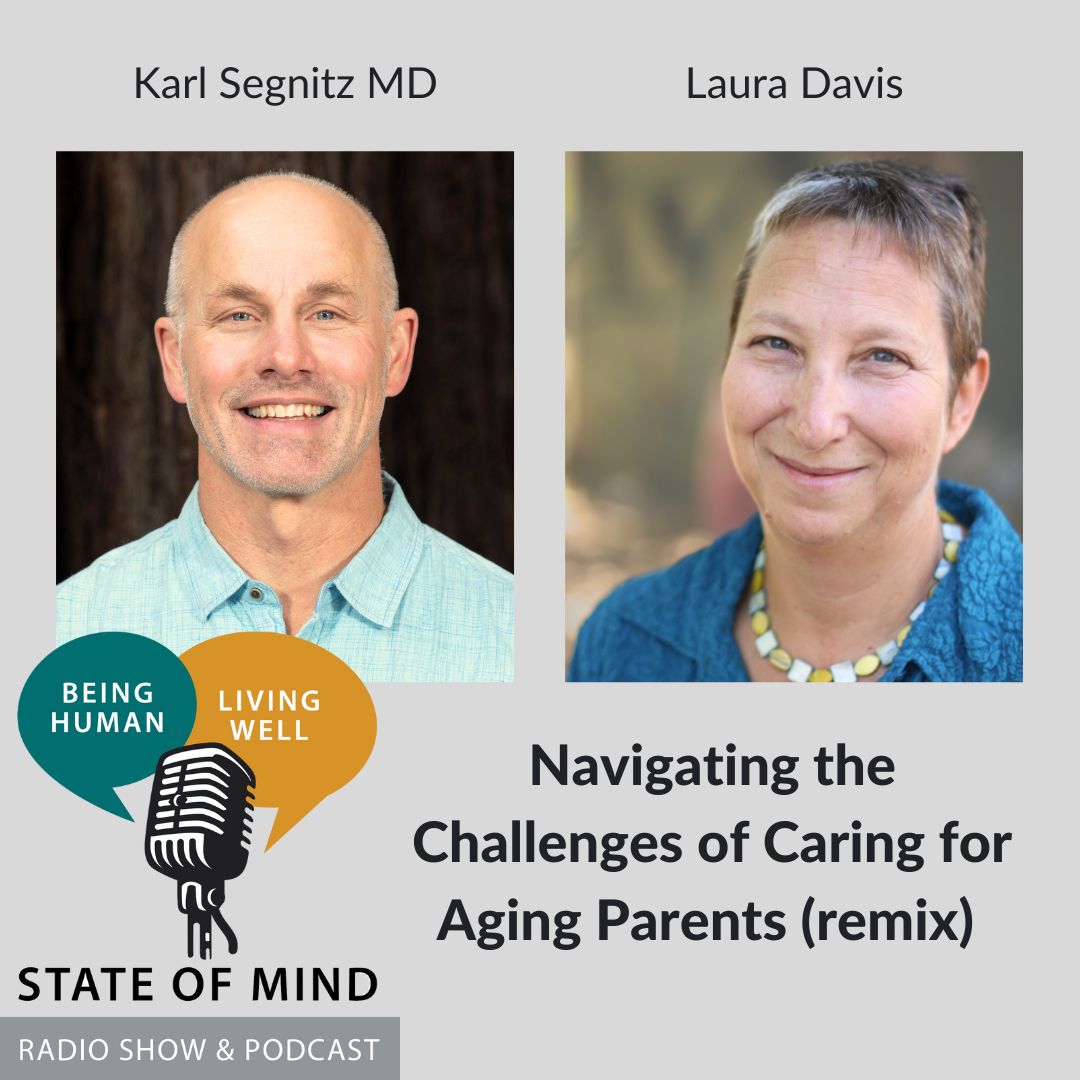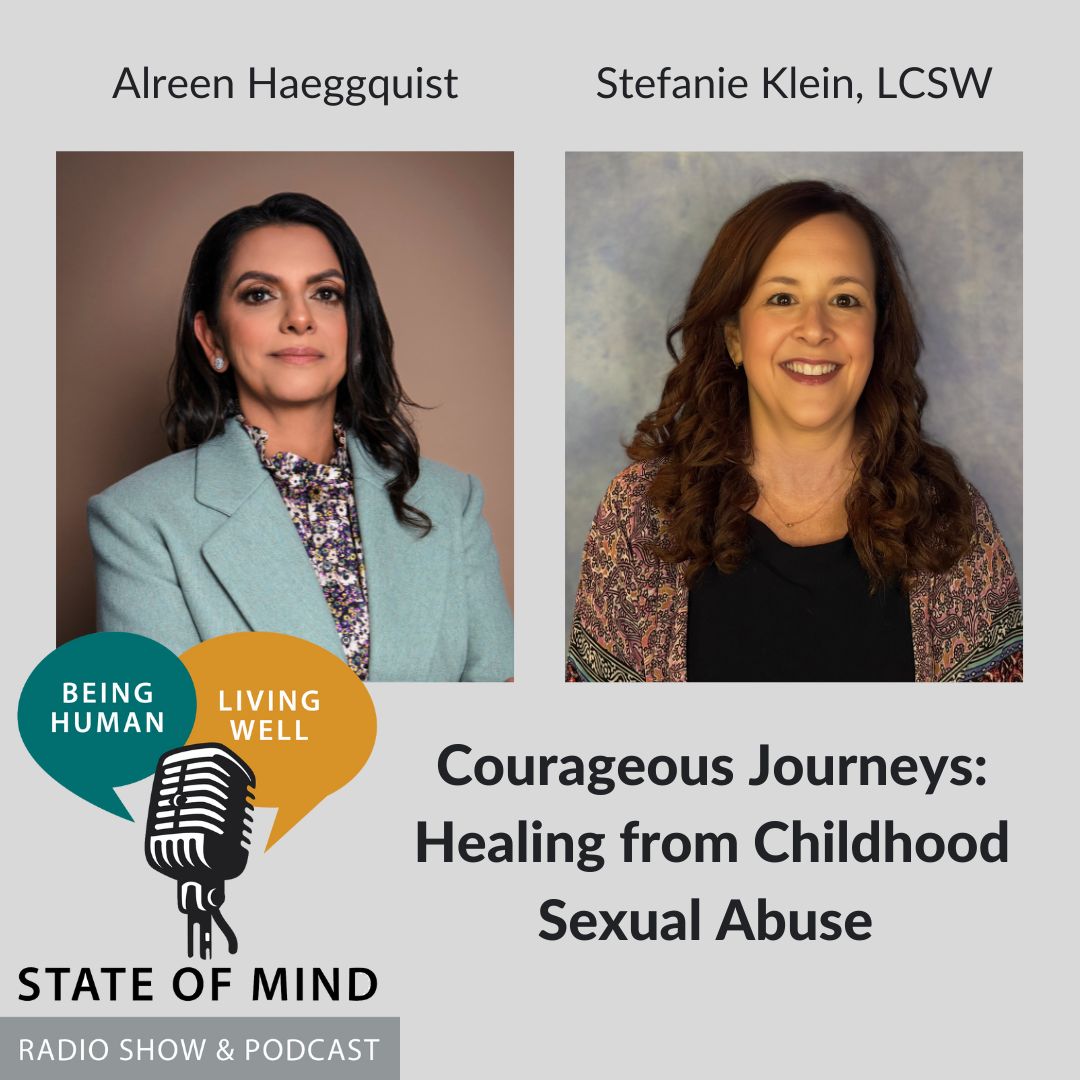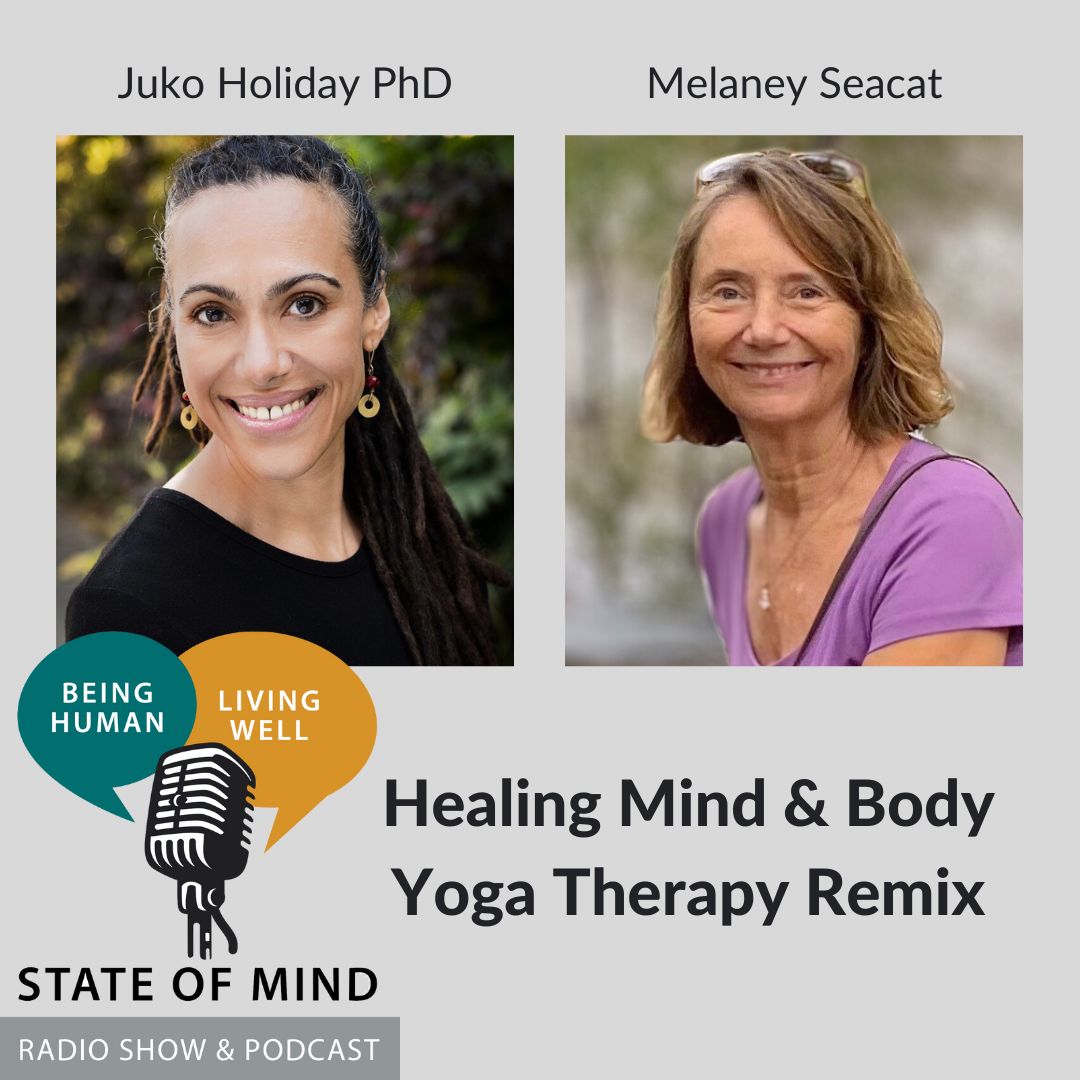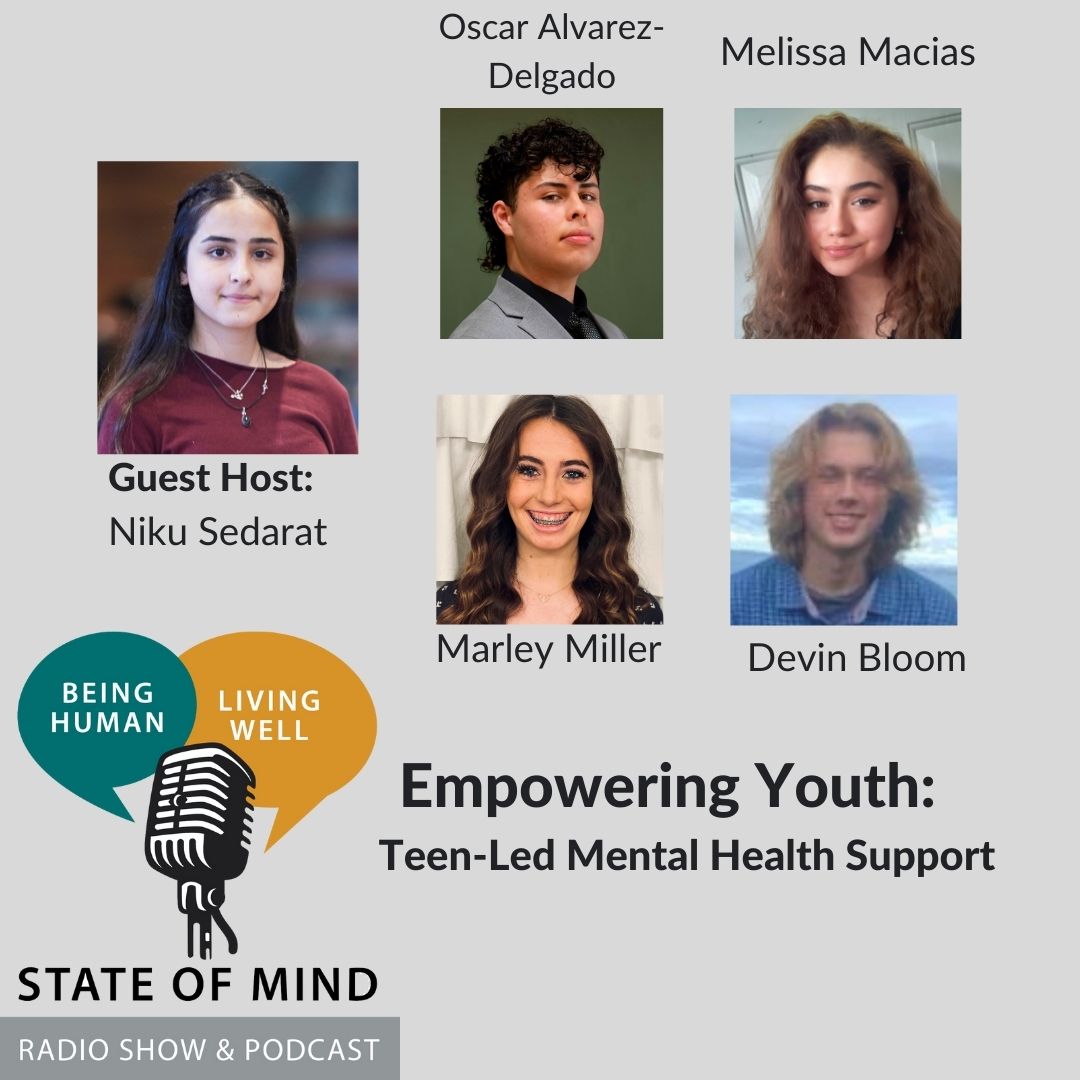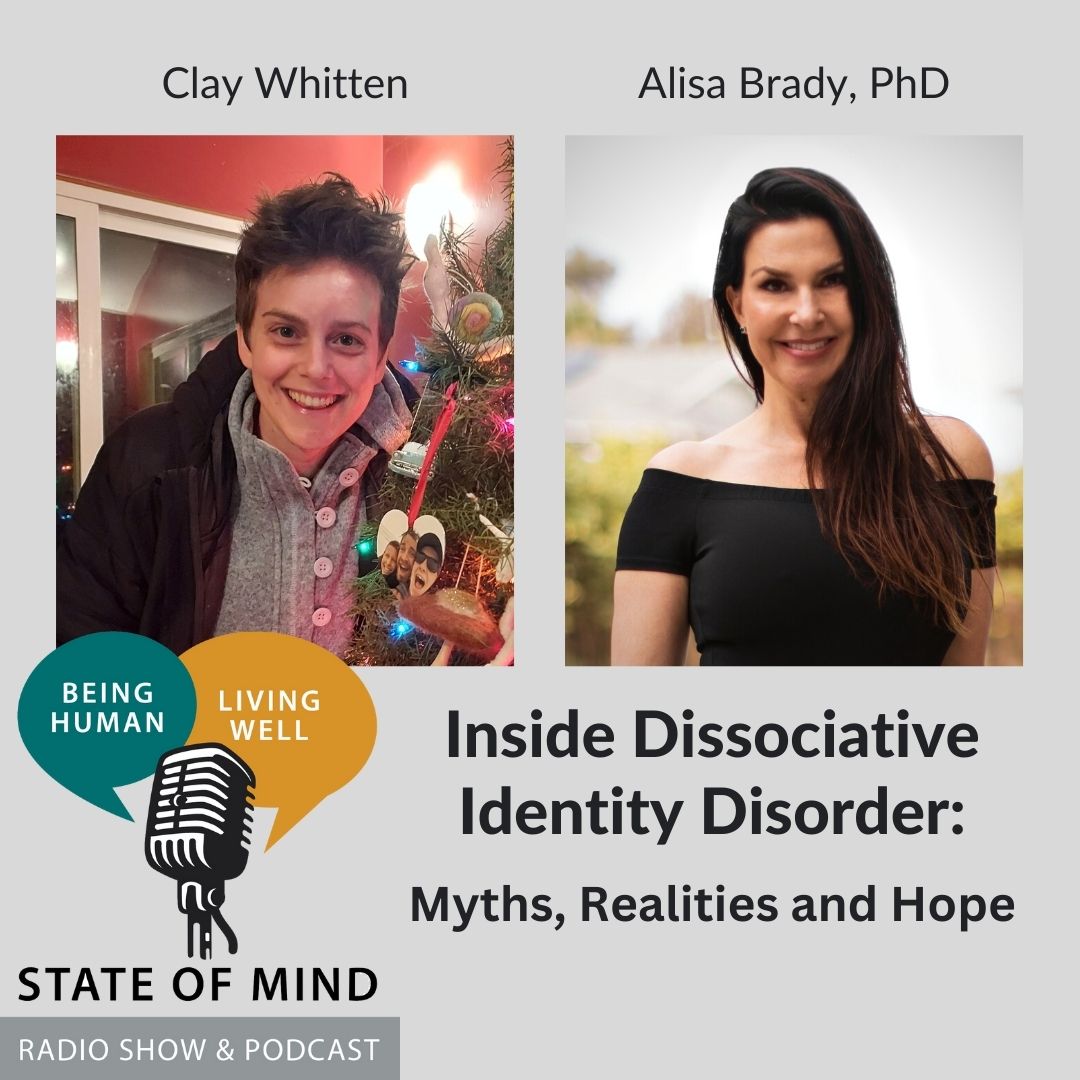Discover State of Mind with Debra Sloss
State of Mind with Debra Sloss

State of Mind with Debra Sloss
Author: Debra Sloss, ksqd.org
Subscribed: 9Played: 195Subscribe
Share
Description
Intimate conversations about mental health and wellness with psychotherapist Debra Sloss. Guests share personal stories and hard-earned wisdom from their lived experience accompanied by expert guests sharing their professional knowledge on important mental health topics. Together we’ll explore the intricacies of being human and living well. Join us for new understandings, seeds of hope, and valuable resources. New episodes released the first Sunday of every month. Unique resource lists are posted in show notes for each episode and can be found at www.stateofmindmedia.org.
82 Episodes
Reverse
Episode 82: Guest host Patrice Vecchione explores the mental health challenges of living with a terminal illness. Featuring the late Megan Myers’s moving story, insights from palliative care physician Dr. John Hausdorff, and reflections from Kevin Christine Kennedy, who is now nearing the end of her life. Together, they share how people face loss while also finding courage, hope, and meaning at life’s end. Find resources from this episode in the show notes.
Episode 81: In this episode, we explore how self-care can sustain us through hard times. Host Debra Sloss and psychotherapist Kara Bowman reflect on a series of moving listener-submitted stories that reveal how simple, soulful practices can nourish resilience. From music to movement, these everyday acts offer powerful ways to stay grounded amid adversity. Tune in for wisdom, inspiration, and gentle reminders that self-care is essential.
Episode 80: What happens after a loved one dies by suicide? In this poignant episode, Leslie Nielsen shares the loss of her adult son, while another woman reflects on losing her mother. Former suicide prevention director Carly Memoli offers insight into the unique grief that follows and how healing can begin—a raw and hopeful glimpse into learning to live with unimaginable pain and grief.
Episode 79: Guest host Patrice Vecchione leads a heartfelt conversation with three vibrant elders—Barbara Stark, Alice Tao, and Elliot Ruchowitz-Roberts—about how they’ve embraced aging with purpose and adaptability. Plus senior care specialist Ruth Nickens offers practical insights from her 40-year career. Whether you’re 25 or 95, this rich discussion will reshape how you think about aging.
Episode 78: More men are embracing therapy and challenging old stigmas. In this remixed episode, Guest Host Lisa Herendeen, LMFT talks with Joey Fino, Mark Vanderhoof, and psychotherapist Tim Hartnett, PhD about how therapy can transform men’s lives. We’ve also added a powerful “In Your Voice” story, reflecting on how therapy supported Daniel’s journey from adolescence to adulthood. Tune in for a compelling conversation on healing, connection, and emotional growth.
Episode 77: Awe isn’t just a beautiful emotion—it’s a powerful tool for well-being. Research shows it can reduce stress, ease anxiety, lift mood, and even relieve chronic pain. Host Debra Sloss is joined by Dr. Michael Amster, co-author of The Power of Awe, and Jaime Garcia to explore how awe regulates the nervous system, enhances mental health, and simple ways to cultivate it in just one minute a day.
Episode 76: Medical Aid in Dying (MAID) allows terminally ill, mentally capable adults to self-ingest prescribed medication to pass peacefully on their own terms. As the Baby Boomer generation ages, end-of-life choices are more relevant than ever. Psychotherapist and host Debra Sloss is joined by Dr. Lisa Segnitz, a palliative care physician, Kim Stokely, who supported her sister through MAID, and Neil Vargas-Gladen, a chaplain offering spiritual insights. Together, they explore MAID’s ethical, medical, mental health and emotional dimensions.
Episode 75: This episode unpacks the differences between codependent and interdependent relationships, focusing on setting healthy boundaries and recognizing what you can and cannot control. Psychotherapist Kat Zwick, LMFT, and Jill, a Co-Dependents Anonymous member, share insights and strategies for managing anxious or imbalanced dynamics—with a loved one facing mental health challenges, substance abuse, or other difficulties. Whether you're a parent, caregiver, spouse, or friend, this conversation offers valuable tools to navigate relationships and foster personal well-being.
Episode 74: Over 70% of U.S. adults have experienced trauma, which can deeply impact mental and physical health by altering the brain and nervous system. Fortunately, recovery is possible. Yoga teacher Abbey Asher shares how she maintained her mental health while caring for her terminally ill husband, and trauma specialist Karen Ouse, LMFT, provides strategies to heal, calm the nervous system, and build resilience. This episode offers tools and hope for rebuilding after trauma.
Episode 73: This episode sheds light on the overlooked struggles of mothers supporting adult children with mental health or addiction challenges. Balancing unconditional love with setting boundaries and preserving their own well-being requires immense resilience. Psychotherapist and author Judith Smith, PhD, shares research on mothers navigating these challenges later in life, while Cathy Pereyra, a mother and a mental health education and support group leader, offers her lived experience and practical insights. Together, our guests and several contributing mothers discuss the support needed to help these mothers not just survive, but thrive.
Episode 72: This episode tackles the impact of social media on teen mental health, featuring teen voices at the forefront. Guest host Niku Sedarat, an 18-year-old mental health advocate, joins three young adults and Harvard psychologist Dr. Emily Weinstein to share research-based findings, real life experiences, and insights. Together, they discuss the dual role of social media in both supporting and challenging well-being of youth, while offering parents and caregivers a deeper understanding of the digital lives of today’s teens.
Episode 71: In this episode, we dive into the complexities of navigating the special education system, particularly for students with hidden disabilities such as ADHD, autism spectrum disorder, and mental health conditions like bipolar disorder and anxiety. With 13% of California’s K-12 students receiving individualized services, understanding this process is crucial for parents and caregivers seeking the best support for their children. Joined by educator and parent Anne Childers and Dr. Kathryn Keithly, a licensed educational psychologist, we aim to provide a practical guide for advocating within the school system.
Episode 70: In this episode, we discuss bipolar disorder and its challenges for college students. Allyson Makuch shares her inspiring journey of navigating bipolar disorder through college and graduate school, while Dr. David Lo from the University of California, Santa Cruz provides advice on managing bipolar disorder while pursuing academic goals.
Episode 69: Explore the profound impact of Obsessive Compulsive Disorder (OCD) in this episode. Educator and musician Lisa Taylor shares her personal journey with OCD and the treatments that help her thrive, including Exposure Response Prevention (ERP) Therapy. Psychologist Dr. Dufford discusses OCD symptoms and evidence-based treatments. Learn about an emerging therapy called I-CBT. Plus, enjoy an original song by Lisa about her experience.
Episode 68: We explore the challenges of caregiving for aging parents, a role that one in six Americans, especially women, undertake. Award-winning author Laura Davis discusses her experience of reconciling with her mother while caring for her through dementia and death. Dr. Karl Segnitz provides advice on end-of-life care and support. Tune in to gain insights and support for this vital role.
Episode 67: Research reveals that in a group of 20 children, five girls and one boy will experience childhood sexual abuse before the age of 18. We’re joined by survivor and author Alreen Haeggquist, along with Licensed Clinical Social Worker and trauma specialist Stefanie Klein, to discuss the complex journey of healing from such trauma. Find valuable insights, support, and resources crafted for survivors who are on this challenging, yet hopeful, path and the people who love them.
Episode 66: Join us for an enlightening discussion on adult autism with Lou Ursa and Jasmeen Miah, both psychotherapists and self-advocates on the autistic spectrum. In this conversation, we confront stereotypes, share personal stories, and offer heartwarming examples of thriving with autism. With diagnoses on the rise, we all can engage in meaningful conversations about autism, explore how societal structures shape perceptions of "disability" and offer empathy, understanding and inclusion.
Episode 65: Join us to explore the growing significance of Yoga Therapy in mental health treatment. With a cultural shift emphasizing the mind-body connection, yoga has become something crucial for holistic well-being. Our guests, including integrative mental health practitioner Dr. Juko Holiday and survivor Melaney Seacat, share insights into its therapeutic benefits that are aiding veterans and individuals like Melaney. Tune in to discover more about this transformative approach.
Episode 64: Dive into the pressing reality of the youth mental health crisis. In this episode crafted by teens, for teens, we explore how youth can lend support to their peers through mental health education, community engagement, and advocacy. Join 17-year-old guest host and mental health advocate, Niku Sedarat, as she leads a discussion featuring four teen guests from diverse Monterey Bay area high schools. Together, they discuss the unique needs of their communities and unveil the many ways in which youth-driven mental health advocacy can spark meaningful change.
Meet our guests Marley Miller, Melissa Macias, Oscar Alvarez-Delgado, and Devin Bloom, as they courageously share their personal journeys and innovative approaches to promoting mental well-being among their peers.
Episode 63: Delve into the intricate world of Dissociative Identity Disorder (DID), a widely misunderstood psychiatric condition rooted in profound childhood trauma. Join clinical psychologist and trauma specialist Dr. Alisa Brady as she sheds light on DiD and the serious mental health symptoms associated with it. DID survivor Clay Whitten shares their firsthand experiences and the transformative impact of Internal Family Systems (IFS) therapy on their journey towards healing. Gain insights into the complexities of DID, and unravel the layers with experts who bring compassion, understanding, and hope to this topic.
Comments
 United States
United States

